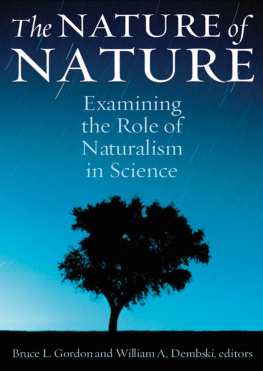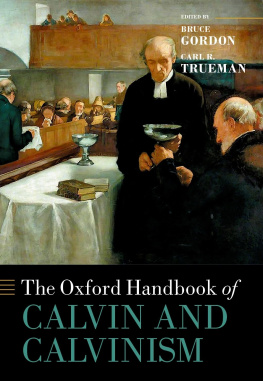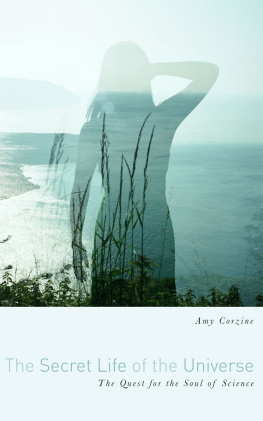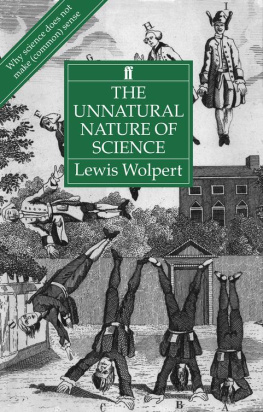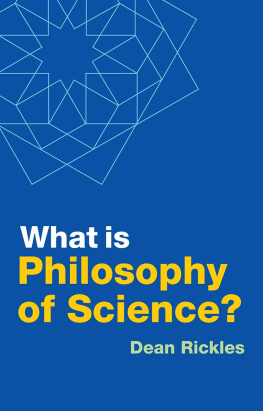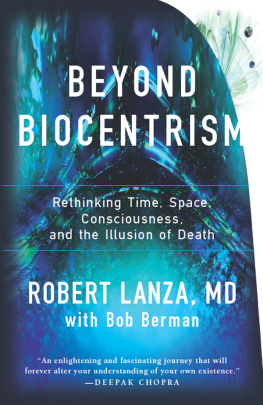T HE N ATURE OF N ATURE
Examining the Role of
Naturalism in Science
Edited by
Bruce L. Gordon
and William A. Dembski

Wilmington , Delaware
C ONTENTS
Steve Fuller
Bruce L. Gordon and William A. Dembski
PART I:
NATURALIZING SCIENCE:
SOME HISTORICAL AND PHILOSOPHICAL CONSIDERATIONS
Bruce L. Gordon
Ronald L. Numbers
Ernan McMullin
Stephen C. Meyer
PART II:
THE EPISTEMOLOGICAL AND ONTOLOGICAL
FOUNDATIONS OF NATURALISM
Alvin C. Plantinga
William J. Talbott
A. Its No Illusion! Alvin C. Plantinga
B. The End of an Illusion? William J. Talbott
Bruce L. Gordon
Robert C. Koons
Alvin I. Goldman
Michael Williams
Nicholas Wolterstorff
PART III:
THE ORIGIN OF BIOLOGICAL INFORMATION AND THE
EMERGENCE OF BIOLOGICAL COMPLEXITY
David Berlinski
Stephen C. Meyer
Christian de Duve
William A. Dembski and Robert J. Marks II
Mark Ptashne
Douglas D. Axe
Michael J. Behe
Michael Shermer
Fazale R. Rana
PART IV:
COSMOLOGICAL ORIGINS AND FINE-TUNING
Alan Guth
William Lane Craig
Howard J. Van Till
Steven Weinberg
Bruce L. Gordon
Guillermo Gonzalez
PART V:
MATHEMATICS
Philip Kitcher
Mark Steiner
PART VI:
EVOLUTIONARY PSYCHOLOGY, NEUROSCIENCE,
AND CONSCIOUSNESS
John Tooby and Leda Cosmides
David Berlinski
John R. Searle
Francis Crick and Christof Koch
Nancey Murphy
Stuart Hameroff and Roger Penrose
Henry P. Stapp
James P. Moreland
PART VII: SCIENCE, ETHICS, AND RELIGION
Michael Ruse
Dallas Willard
Michael Tooley
William Lane Craig
F OREWORD
B EYOND N ATURALISM TO S CIENCE
S TEVE F ULLER
I can appreciate a book called The Nature of Nature because I have called myself a reflexive naturalist. If naturalism is the default metaphysical position of the natural sciences, then that fact must itself be explained by the theories and methods of the natural sciences. But how does one do that without begging crucial questions? For example, it is tempting to argue that the natural sciences are simply a somewhat more disciplined version of commonsense, which itself is an extension of the problem-solving skills that all animals deploy in adapting to their environments. Such a view was explicitly promoted in the twentieth century by the American pragmatists John Dewey and Willard Quine, both of whom invoked naturalism to name their own positions. It had the virtue of bringing science down to earth by making it seem to be part of our evolutionary heritage. But in the process, this view presumed that the natural sciences ideological self-understanding was largely correct. In other words, science was explained as an instance of something of which it was already trying to provide a theoretical account. Yet the epistemic distinctiveness of science, whereby it breaks with animal modes of intelligence and even everyday forms of human reasoning, remained unaddressed, if not obscured, in the process.
If science were indeed little more than incrementally enhanced ordinary perceptionsay, the indefinite aggregation of beings with indefinitely powerful eyesthen the history of science would not have been as it is. Long before Thomas Kuhn, it was recognized that science periodically reconstitutes societys taken-for-granted ideas, regardless of whether that serves to stabilize or destabilize our place in nature. For example, the relativity and quantum revolutions in twentieth-century physics shifted sciences epistemic center of gravity very far from commonsense and in ways that have placed humanitys survival increasingly at risk. Notwithstanding a persistent undercurrent of protest, sometimes in the name of humanity but increasingly in the name of nature, we have acted as if the benefits of science outweigh the costs. But what is the source of this overriding faith? After all, the practical benefits continue to be controversialas in, say, nuclear energy, stem-cell research, and nanotechnology.
Nevertheless, sciences theoretical benefits remain clear. In particular, the revolutions in physics appear unequivocally good because they significantly advance the distinctly human quest for universal knowledge in at least three senses of that term, all of which cut against the spirit of naturalism:
(1) Science aspires to knowledge of all things, under conditions potential and actual, regardless of their relevance to our everyday lives, let alone personal or species survival. Indeed, most of what science purports to be about will never be experienced directly by anyone, and only a very small fraction of the reality charted by science will be encountered even by expert scientists. Another, more empowering way to make the same point is to say that what we may come to know is not restricted to what we have known. In that sense, science transcends history. A scientific inquiry into the nature of life or the nature of mind may begin by examining living organisms and conscious humans, but it then poses the question in broader, more abstract terms, countenancing the range of material properties that living and conscious beings might possess, wherever they might be.
(2) Science aspires to articulate all things in a common language, no matter how different these things may appear to our senses. Newton first achieved this feat by mathematically unifying our understanding of the motions of the planets and objects on Earth. John Locke, one of the original Newtonians, canonized the difference between how things are and how they seem to be in terms of primary and secondary qualities. In the wake of Newton, mathematics quest to articulate the primary qualities of things has led the discipline to develop in directions far removed from ordinary tasks of measurement and calculation, from non-Euclidean geometries to the paradoxes of set theory. Corresponding to that has been the introduction of specialized uses for ordinary terms as well as some entirely new terms and conceptualizations that have periodically challenged our basic understanding of space, time, and cause. In this context, for better or worse, symbolic logic has been promoted as the language of universal thought.
(3) Science aspires to be knowledge for everyone, a universal human legacy. This is the sense in which science most controversially defies naturalism. The palpable diversity of human beingsbe it by origins or appearanceis not sufficient to discount their experience and ideas from the constitution of scientific knowledge. On the contrary, a mark of the unscientific standing of a form of knowledge is that it cannot command universal human assent by virtue of its intimate connection to personal experience. Of course, this is not to deny that different people understand things differently. Rather, it is to say that for such an understanding to count as science, it must be made relevant to those who have not and probably will not experience it for themselves. The principle applies equally to someone possessing arcane technical expertise and rare indigenous knowledge. Here the positivist philosophical distinction between the context of discovery and the context of justification is apt: The more widely justifiable a form of knowledge is, the greater its entitlement to scientific status.
All three senses of sciences universality defy any easy naturalistic explanation because they force us to conceptualize knowledge from a standpoint rather removed from our ordinary embodied experience. Thomas Nagel famously identified this standpoint as the view from nowhere, which certainly captures the spirit of points (1) and (2) above. But in fact science requires what Laudan called aristocratic induction, that is, the ability to see beyond our default expectations to something deeper and even counterintuitive. This point applies to how we regard not only the natural world but also those who regard the natural world.
Next page
